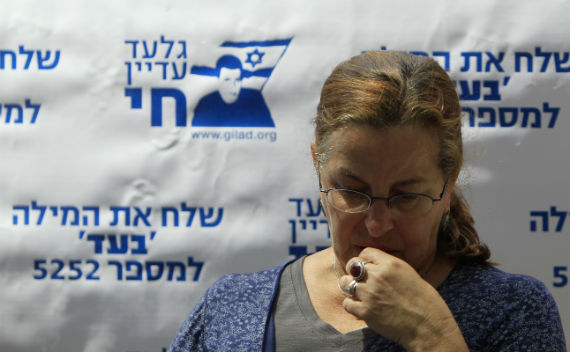More on:

As of this posting, the Israeli cabinet is still meeting in an emergency session to discuss a deal aimed at securing the release of Gilad Shalit, abducted by Hamas in June of 2006 on the Israeli-Gaza border. Details remain scant. Initial reports suggest more than 1,000 Palestinians, currently held by Israel, would be exchanged in return for Corporal Shalit. While it is early to speculate too widely with so little still known, I will nonetheless venture a few initial conclusions on what such a deal would mean.
First, Shalit’s release would lift an enormous burden for Shalit, his family, and indeed, Israel. For all walks of Israelis, Shalit has been everybody’s son, the regular conscript brutally held hostage in isolation, without even Red Cross access. On my daily commute to the Quartet Mission which I headed in Jerusalem, I would pass the round-the-clock protest tent pitched outside Prime Minister Netanyahu’s residence. This nonstop demonstration was manned by Israelis from throughout the country, intent on pressing Netanyahu to bring Shalit home. This tent was, presumably, the first thing the prime minister would see on his way to work, and the last thing he would see as he returned home.
For Israelis, the overriding message is that their government will go to extraordinary lengths to bring the country’s soldiers back home. This is critical to maintaining the morale of an army manned by conscripts and reservists drawn from most segments of the nation’s population, other than Arab Israelis. It is even more essential if the army is to remain one of the few venerated institutions in Israeli society.
Nonetheless, for a prime minister who wrote a book arguing for an uncompromising approach to terrorism, this is a heavy price to pay. It signals that Israel will indeed negotiate, albeit under duress, for hostages and with an organization that most of the world regards as terrorists.
Hamas will benefit politically from this deal, particularly within intra-Palestinian politics. They will argue that their hard-line approach pays greater dividends than the nonviolent tactics employed by Fatah’s leader Mahmoud Abbas. The deal will provide Hamas greater legitimacy for having successfully negotiated a deal with Israel by proxy, and will increase the calls for renewed Hamas-Fatah unity discussions. Having just secured so many prisoners, Hamas will likely not be very compromising toward its Fatah rivals. And Abu Mazen will now feel even further compelled to push forward in his statehood bid at the United Nations.
Noteworthy are reports that the deal was negotiated by Ahmed al-Jabari, the head of Hamas’ military wing, and one of the most hard-line elements within the organization. This indicates that the Damascus-based “outside” leadership, already weakened by the unrest sweeping Syria, does not call the shots on the ground, and that it is the militants among the “insiders” who direct events in Gaza.
Finally, it is significant that the recent Israeli-Hamas negotiations over Shalit were brokered in Cairo by the Egyptian intelligence services. Thus, despite the Mubarak regime’s toppling and the recent instability in Cairo, Egypt’s security services continue to play a critical negotiating role between the two adversaries. Indeed, a post-Mubarak Egypt that is seen as less hostile to the Muslim Brotherhood will likely enjoy better relations with Hamas, and may therefore enjoy more influence. That the Egyptians were sufficiently trusted by both Israel and Hamas to help broker a deal is encouraging, and suggests that Egypt can continue to play a critical role in stabilizing and mitigating the violence between Israel and neighboring Hamas-controlled Gaza.
More on: